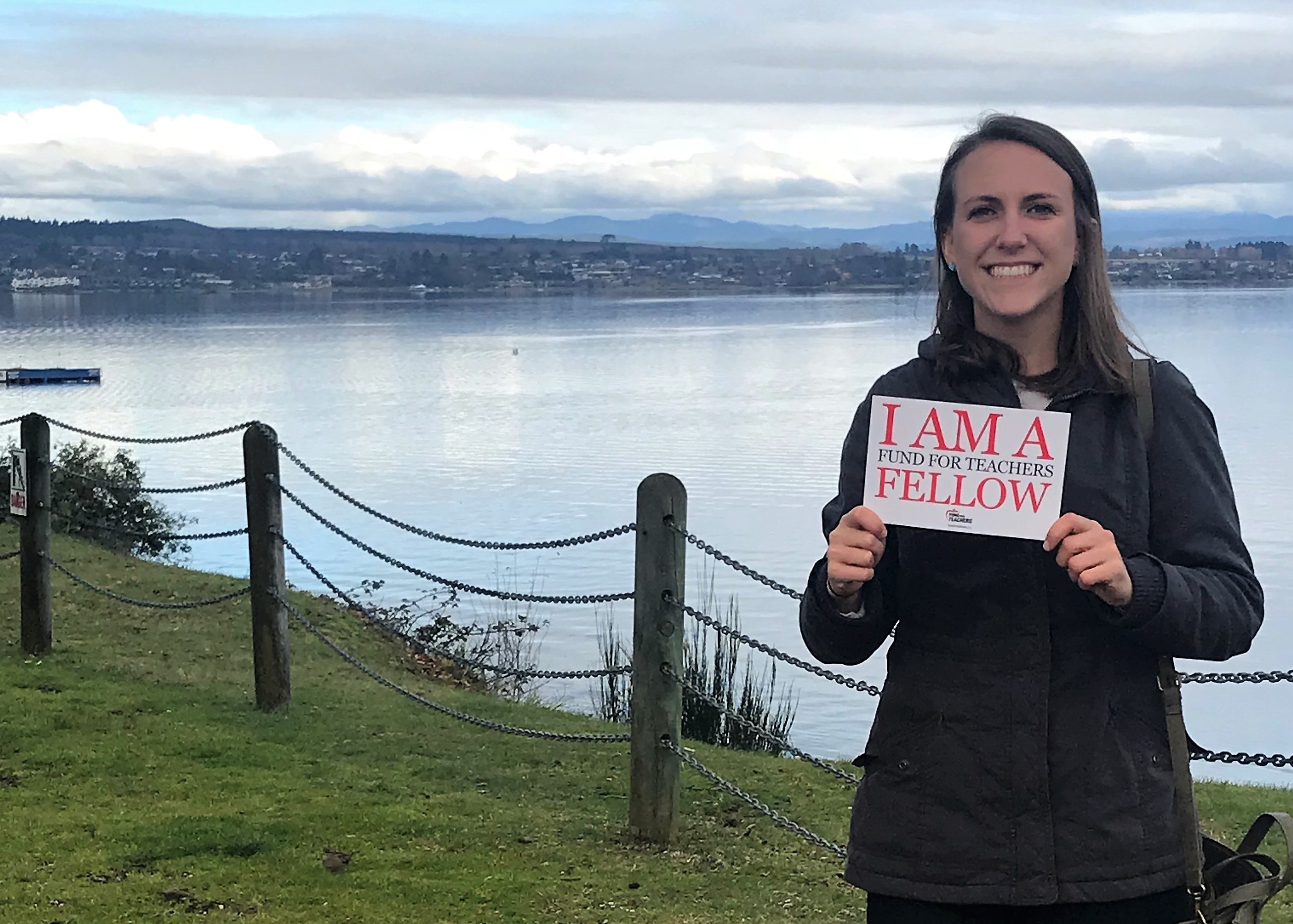Social Skills for Special Students


Michelle with board president Chris Santiago
[minti_dropcap style=”circle”]M[/minti_dropcap]ichelle Erwin teaches special education at Carlton Pre-Vocational Center in Cypress, TX, outside of Houston. Last week, however, our board of directors and staff were her students as we learned about her fellowship and its impact. We were so inspired that we asked Michelle to write something that we could share with others, knowing her story and chosen calling would inspire you, as well.[minti_divider style=”3″ icon=”” margin=”20px 0px 20px 0px”]
Fund for Teachers gave me the opportunity to attend a conference focused on social skill development for individuals with Autism and Intellectual Disabilities in Australia. In addition, I toured Australian and New Zealand special education programs to learn new approaches for developing and executing social skills curricula to prepare adults with disabilities to become successfully employed community members.

Touring an Australian Disability Enterprises location providing employment & transition services for young adults with disabilities
As a “transition to employment” teacher, I teach my students with special needs real hands-on skills to help them become well rounded citizens and adults after graduation. It is important for me to teach my students skills to help build their resume and to become employable. However, it has become clear to me that the greatest need is in the students developing appropriate social skills with their peers and supervisors. This lifelong skill not only assists them during the application and interview process but impacts all aspects of their lives.
Being able to specifically design my own staff development through Fund for Teachers helped me center my learning based on this student need. In Australia, I had the opportunity to learn research-based practices at the Australian Association of Special Educators conference. There I was immersed social emotional learning and innovative ways to impact our students. I had the opportunity to collaborate with passionate educators in both Australia and New Zealand, watching their program structures and natural social skills development. This gave me a new perspective on how to teach social emotional skills.
After my fellowship, I was able to give my personalized lessons and truly prepare them for their next step. I have created a social skills curriculum to teach my students tangible skills that will assist them in becoming more independent and prepare them for employment.
In this past year I have seen a significant progress. The knowledge I gained from my colleagues in Australia and New Zealand provided me for an entirely new perspective and techniques to empower my students in taking control of their learning. My graduating seniors are now more prepared by having the skills to advocate for themselves. This has led my students to have significant progress towards achieving their transition goals. In addition to the impact that it has made on my classroom, I was able to present my findings to both my campus and district transition to employment teachers. It has encouraged teachers to continue their own educational growth and to use innovative methods to support our students.
[minti_divider style=”3″ icon=”” margin=”20px 0px 20px 0px”]
As a fifth year, second generation teacher, Michelle remains dedicated to encouraging students with disabilities to reach their potential and become outstanding members of her community. The morning following our board dinner, she was driving her students (yes, she obtained a bus driver’s licence) to various restaurants so they could practice ordering meals.
 Back to Blogs
Back to Blogs